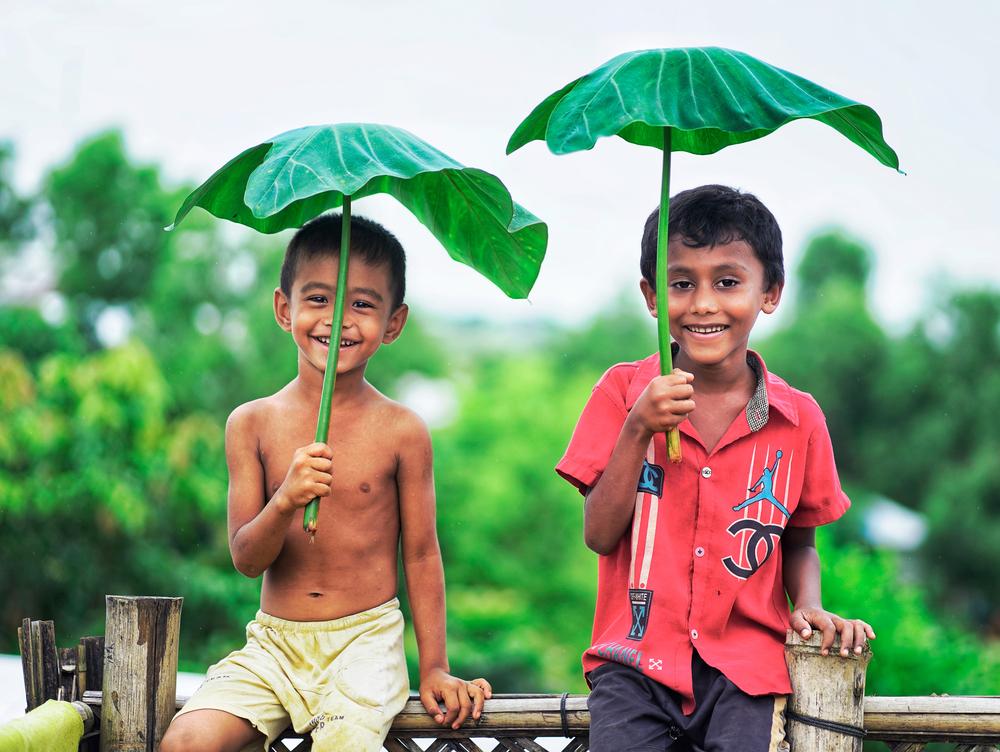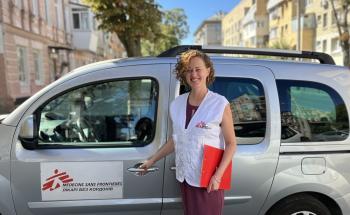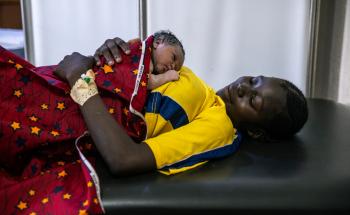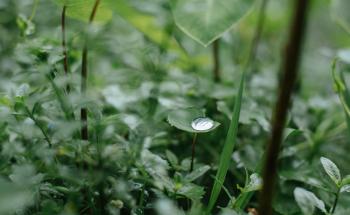The Taro leaf is a symbol representing the Rohingya experience of statelessness. It comes from a proverb: Hoñsu Fathar Faaní, which is about how water sits on a Taro leaf, like it's floating, and when the wind blows, it rolls off, leaving no mark.
This is what statelessness feels like. For the Rohingya, our history is being erased in Arakan, and wherever we live, it is difficult to get documents, to practice our culture and build a life and future. We are like water on a Taro leaf, floating with no land under our feet, we are at threat of disappearing. So for Rohingya, existing is resisting, we need to keep living our lives, telling our stories and continuing our legacy (Meeras).
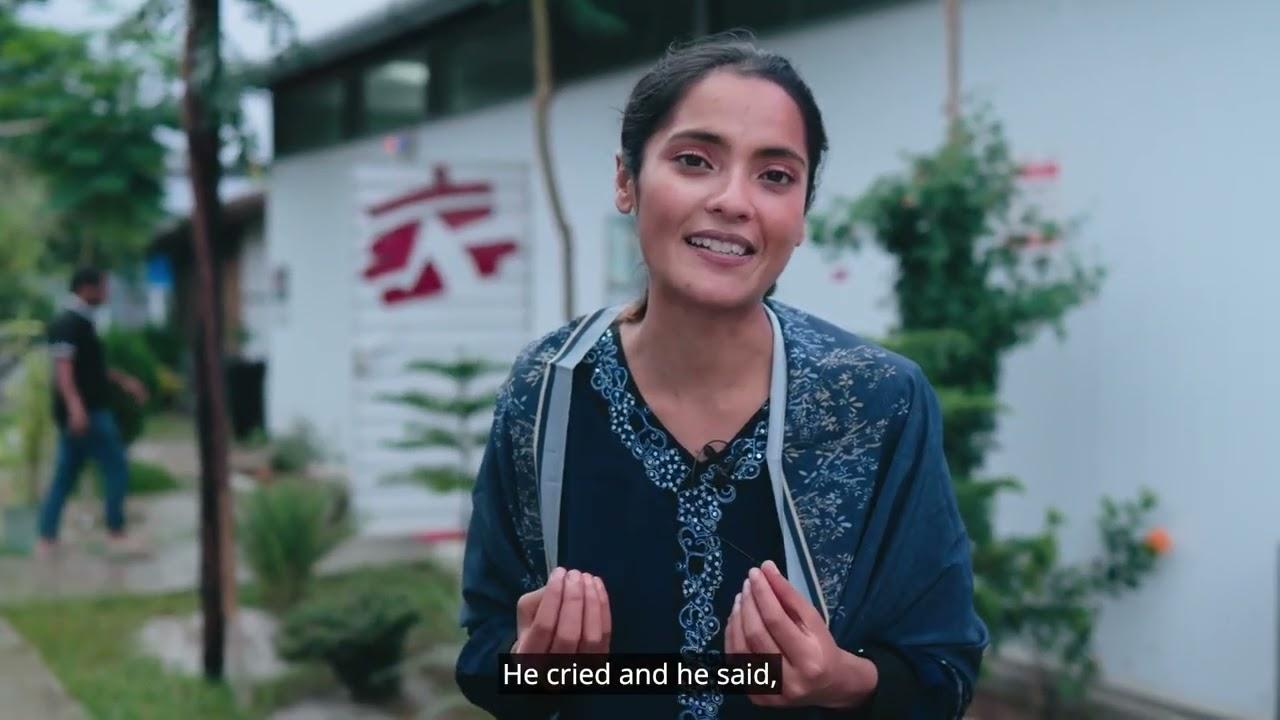
Taro Leaf: A Symbol for the Rohingya Experience
This floating creates many problems, especially for the Rohingya stuck in the Kutupalong refugee camp. We are restless, living in limbo between countries that don't want us. It is difficult to access education, healthcare, and opportunities for the future. This means our kids are on the street and make bad decisions like being convinced to choose violence over community, some husbands turn to gambling with the hope of finding a way out, women feel unsafe walking alone, and we fight over the little resources we have like selling water or controlling access through the camp, at any time authorities can move us to another shelter and we have no right to refuse, we feel shame begging for operations or asking permission to move. We have been drifting for eight years, some of us for much longer. As time passes, we lose hope and start to believe that camp life is our fate, or that there is no destination, only a journey of suffering.
But despite this many of us keep finding the strength to make a mark, by practicing our culture, teaching our children, studying in online universities, working toward our future, and finding pathways out of the camp, we revive our language, hold Arakan in our hearts, find things we can control in our hands, keep advocating for rights, and create diverse stories to represent our people.
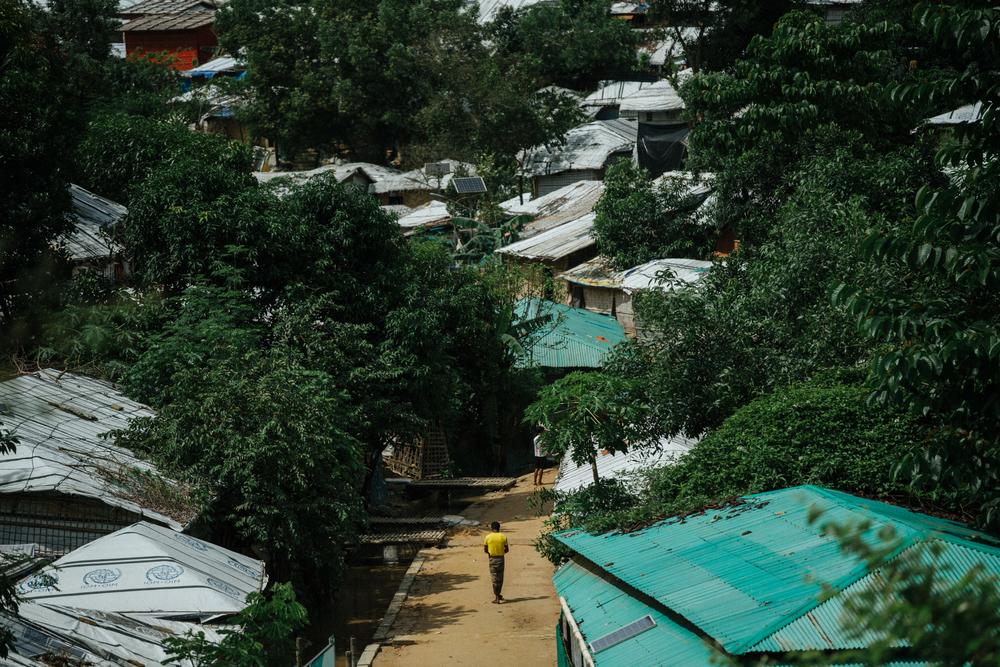
The Taro leaf shares this story with the international community, to help people understand the experience of statelessness and to put pressure on governments for positive change. But the symbol is also for us, it helps us continue our legacy. All the crafts you see here are part of Rohingya culture, if we don't keep practicing them we will loose our culture and our connection to country. In Arakan we made fish nets and bamboo farming tools out of necessity, but in the camp we have stopped, because there is no land. This project has helped us practice these crafts and pass these stories onto our children. It reminds us what it is to be Rohingya.
We hope one day these water drops can find a place to rest. We want to return home or find other places to settle with safety, dignity and rights. If this is not possible there is no point in providing food or shelter, will we be in this camp for another 50 years? Please help us find a pathway forward, we cannot do it alone.
